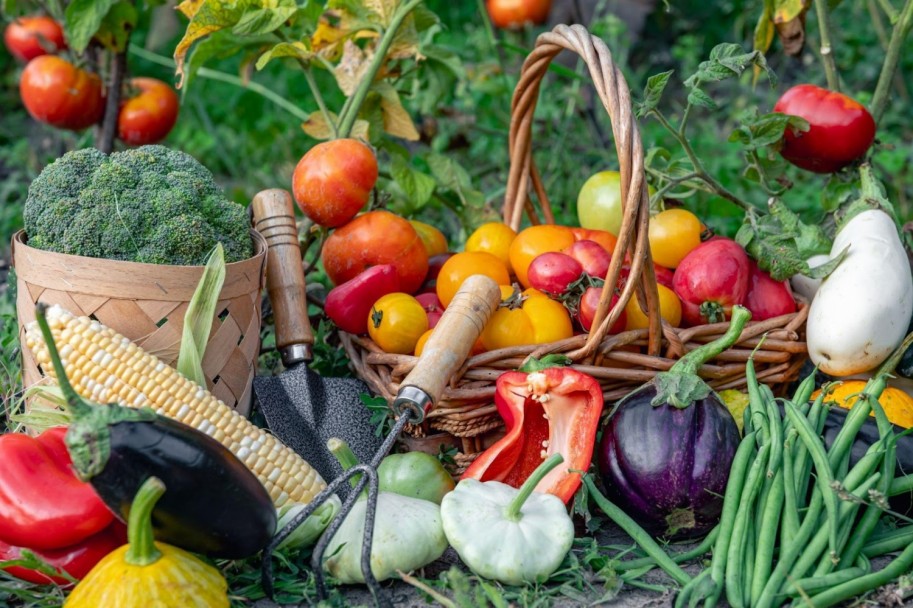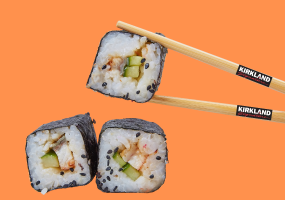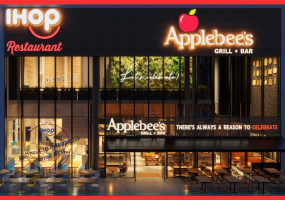
Amy's Kitchen is no stranger to ingenuity. When it hit the frozen food market in 1987, vegetarian options were scarce, and there was no certification for organic food. Now, the brand is dishing out up to 1 million meals daily. But none of that happened by accident. Co-founders Rachel and Andy Berliner were visionaries who wanted to eat organic, vegetarian, non-GMO food without a hassle and share it with the world.
The frozen food production industry brought in a whopping $45.4 billion in revenue in 2022. With the market growing by 2.6% between 2017 and 2022, Amy's Kitchen has been growing too and releasing new foods to ease the squeeze on consumers' wallets, such as multipacks of burritos and family packs of bestsellers like cheese enchiladas and Chinese noodles.
So, how did America's love affair with frozen food begin? Much like Amy's Kitchen, it started out of necessity. Frozen foods first became popular throughout the United States in the 1940s when a shortage of tin during World War II led to a lack of canned goods—and with women out in the workforce while men fought overseas, there was an expanding need for fast and easy repasts.
However, the idea of frozen food actually came some years earlier when Clarence Birdseye observed how Indigenous Canadians flash-froze their daily catch. According to history.com, Brooklyn, New York-born Birdseye left his home to live in Labrador, Canada, between 1912 and 1917. During his time there, Birdseye would go ice fishing with the Inuits. He noticed how the fish they reeled in would instantly freeze after being left out in the cold, and later, when it was cooked, it still tasted fresh. He eventually started the frozen food brand Birds Eye and invented the double belt freezer, which catapulted the frozen food industry into a cold, hard cash cow.
People of a certain age may fondly remember the "TV dinners" of their childhood—meals of a main course like Salisbury steak, with sides of mashed potatoes and peas or corn, and a dessert that was supposed to be an apple crisp—or was it?—all portioned off in little sections on a tin plate. How far frozen fare has come with Amy's Kitchen, which turned these convenient, and perhaps not very delectable, meals into vegetarian feasts with locally sourced ingredients from small farmers and organic purveyors.
Amy's roots are as organic as its meals—flashback to 1987 to a California kitchen where a revolutionary moment in frozen food evolution occurred. A pregnant Rachel Berliner was placed on bed rest and sent her husband to search for organic vegetarian food that would be uncomplicated to prepare and taste delicious.
"It's such an honest and humble beginning to a business," Amy's President, Paul Schiefer, mentioned on the Responsibly Different podcast. "I'm Andy and Rachel's nephew. I was 8 years old when this story began. So I actually saw this firsthand through my own eyes."
Emphasizing what huge foodies his aunt and uncle were (and still are), Schiefer says they were vegetarian, tended an organic garden at their home, and typically ate very well.
"Andy tried to go to the store to look for convenient frozen food because he didn't really know how to cook so well himself ... and was just sorely disappointed," Schiefer explained. "The few things he could find that were vegetarian were certainly not organic and, in his telling, just didn't taste good."
After multiple letdowns on the hunt for food that would check all the boxes to meet their dietary and lifestyle needs, the Berliners boldly baked a vegetarian potpie. And in that moment, they tapped into the notion that if they were trying to find convenient, delicious, organic vegetarian frozen foods, surely other people were too.
"And he became inspired to start Amy's," Schiefer shared.
Amy just happened to be the name of the Berliners' baby. "They basically had a child and a new company all together in that same first year," Schiefer added.
Not only did Amy's Kitchen pioneer the organic frozen food movement, but the progressive brand also transitioned to tin-plated, non-BPA-lined cans after customers expressed health concerns about bisphenol A. The chemical has been connected to health woes, including possible adverse effects on the brain and prostate gland of fetuses, infants, and children.
Let It Grow
Amy's Kitchen is now available in 43,000 retailers in 11 countries. But before its food hits store shelves, the Berliners still ensure the ingredients align with their original commitment to sourcing as many organic ingredients as possible and working with local California farms. Andy has been meeting with farmers since the inception of his company.
"We want to continue delivering on our mission and providing organic, plant-based meals that are accessible to all," Andy Berliner said in a press release.
Crafting flavorful foods begins with finding the right seeds, according to amys.com. It's a meticulous and mindfully managed process that can't be rushed. The team at Amy's Kitchen thoroughly samples ingredients and gets picky about vegetables. For the Berliners, taste can never be compromised.
Even as Amy's Kitchen has expanded, the Berliners have been adamant about privately holding the company to sustain their dedication to organic and high-quality food.
Where Amy's Kitchen Is Headed Next
With a continuous menu of new products on the way, additional locations of Amy's Drive Thru restaurants have been popping up since the initial site opened in 2015 in Rohnert Park, California, and a new headquarters slated for this fall, Schiefer said it's never been a more exciting time to be part of Amy's Kitchen.
The Berliners told inc.com that an employee suggested Amy's Drive-Thru concept two decades ago. That, combined with a tsunami of letters from loyal customers requesting a restaurant, led to Amy's Kitchen carrying out the mission to level up fast-food drive-thru options with gluten-free, non-GMO, and organic fare. With five locations throughout the Golden State, it serves everything from organic veggie burgers and pizzas to seasonal salads, vegan cheese fries, kombucha, and non-dairy shakes.
"We've got this great opportunity in Amy's Drive Thru, and we certainly see that continuing to grow and putting in restaurants in more and more places across initially California and hopefully eventually across the country," Schiefer said.
* This is a contributed article and this content does not necessarily represent the views of foodworldnews.com









